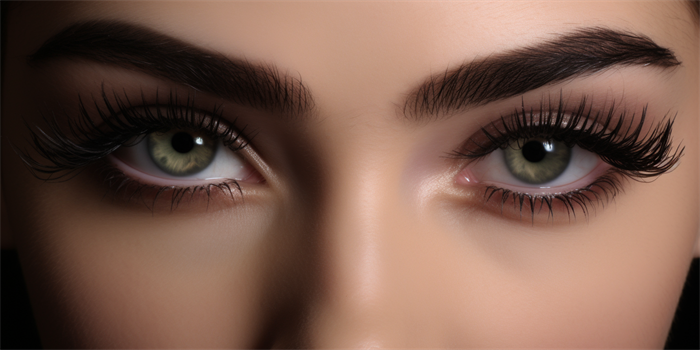What is My Best Option for Brow Lift in New Zealand?
A brow lift, also known as a forehead lift, is a cosmetic surgical procedure that aims to raise the eyebrows to a more youthful position, reduce forehead wrinkles, and improve the overall appearance of the upper face. In New Zealand, several options are available for those considering a brow lift, each with its unique benefits and considerations. This article will explore the best options for brow lift procedures in New Zealand, focusing on key aspects such as surgical techniques, recovery times, and the expertise of practitioners.

1. Traditional Brow Lift
The traditional brow lift, or open brow lift, involves making incisions along the hairline, usually starting at the temples and extending across the top of the head. This method allows the surgeon to access and manipulate the underlying tissues and muscles directly. The traditional brow lift is effective for patients with significant sagging or drooping of the forehead and eyebrows. It provides precise control over the elevation of the brow and can address deep wrinkles and furrows. However, this technique may result in a longer recovery period and a higher risk of scarring compared to less invasive methods.
2. Endoscopic Brow Lift
An endoscopic brow lift is a less invasive alternative to the traditional method. This procedure uses a small camera (endoscope) inserted through several tiny incisions placed along the hairline. The surgeon can then view the underlying structures on a monitor and make adjustments as needed. The endoscopic approach reduces trauma to the tissues, leading to quicker recovery times and minimal scarring. It is particularly suitable for patients with mild to moderate brow drooping and those who prefer a less invasive surgical option.
3. Temporal Brow Lift
The temporal brow lift focuses on the outer portion of the eyebrows, addressing issues such as lateral brow drooping or hooding of the upper eyelids. This procedure involves making small incisions in the hairline near the temples, allowing the surgeon to lift and secure the outer brow area. The temporal brow lift is a good option for patients who primarily have concerns with the outer part of their eyebrows and do not require extensive work on the central or medial brow area. It offers a shorter recovery period and less noticeable scarring compared to more extensive brow lift techniques.
4. Non-Surgical Brow Lift Options
For those seeking a non-surgical alternative, several options are available, including Botox injections and dermal fillers. Botox can temporarily relax the muscles that cause frown lines and brow furrows, creating a subtle lift. Dermal fillers, such as hyaluronic acid, can be injected into the brow area to add volume and lift the skin. These non-surgical methods are ideal for patients who have mild to moderate concerns and prefer a less invasive approach. However, the results are not permanent and require regular maintenance.
5. Choosing the Right Surgeon
Selecting an experienced and qualified plastic surgeon or cosmetic specialist is crucial for achieving the best results in a brow lift procedure. In New Zealand, it is essential to choose a practitioner who is a member of the New Zealand Association of Plastic Surgeons (NZAPS) or the Royal Australian and New Zealand College of Surgeons (RANZCS). These organizations ensure that their members adhere to high standards of practice and ethics. Researching the surgeon's credentials, reviewing before-and-after photos of their work, and scheduling a consultation to discuss your goals and expectations are vital steps in the decision-making process.
6. Recovery and Aftercare
The recovery period for a brow lift varies depending on the technique used. Generally, patients can expect some swelling, bruising, and discomfort in the first week following the surgery. Most practitioners recommend taking at least a week off work to allow for adequate healing. It is crucial to follow the surgeon's post-operative instructions, which may include keeping the head elevated, avoiding strenuous activities, and using prescribed medications to manage pain and prevent infection. Regular follow-up appointments with the surgeon are essential to monitor the healing process and address any concerns.
Frequently Asked Questions
Q: How long does the result of a brow lift last?
A: The results of a brow lift are typically long-lasting, with many patients enjoying a more youthful appearance for several years. However, natural aging processes and environmental factors can affect the longevity of the results.
Q: Are there any risks associated with a brow lift?
A: Like any surgical procedure, a brow lift carries potential risks, including infection, bleeding, scarring, and asymmetry. Choosing an experienced surgeon and following post-operative care instructions can minimize these risks.
Q: Can a brow lift be combined with other facial procedures?
A: Yes, a brow lift is often performed in conjunction with other cosmetic procedures such as facelifts, eyelid surgery, or facial fillers to achieve a comprehensive rejuvenation of the upper face.
Q: How much does a brow lift cost in New Zealand?
A: The cost of a brow lift in New Zealand varies depending on the surgeon's expertise, the technique used, and the geographic location. It is advisable to consult with several practitioners to obtain accurate pricing information and understand what is included in the fee.
In conclusion, the best option for a brow lift in New Zealand depends on individual needs, preferences, and the severity of the concerns. By considering the various techniques, selecting a qualified surgeon, and understanding the recovery process, patients can make an informed decision and achieve a more youthful and refreshed appearance.




